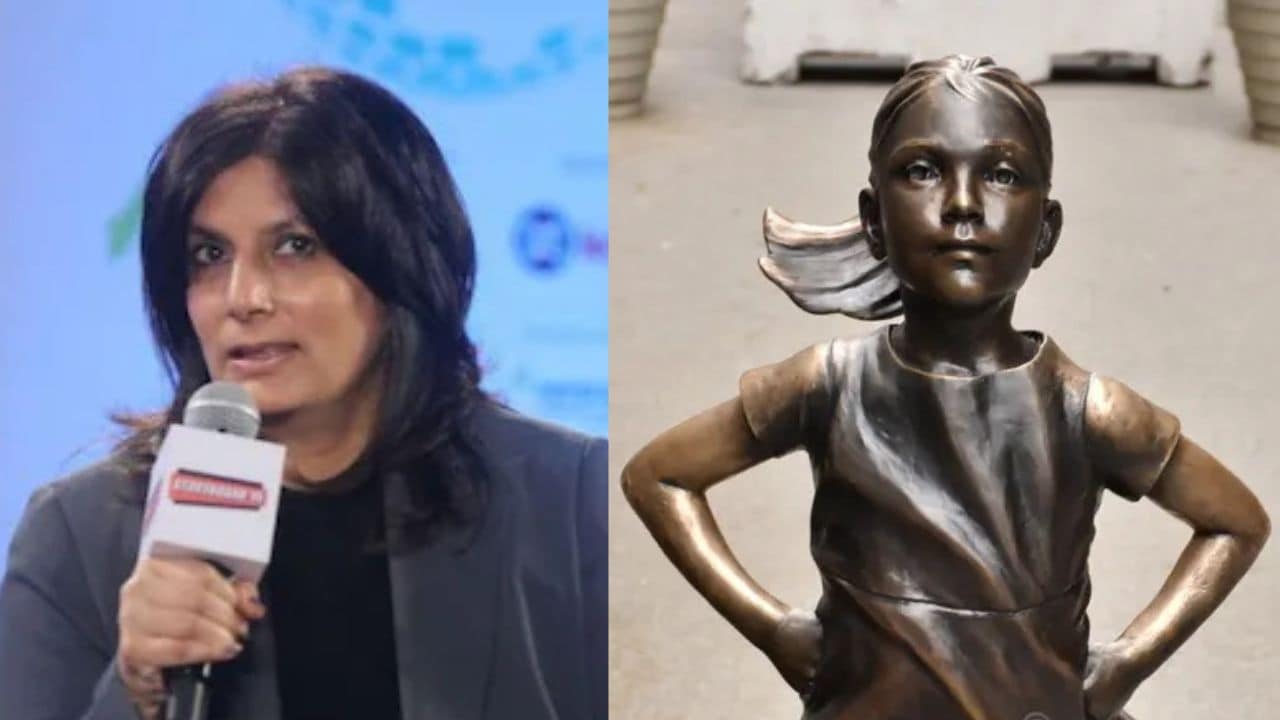WPP, the British advertising giant, has quietly removed “diversity, equity, and inclusion” language from its latest annual report amid growing U.S. scrutiny of corporate diversity efforts. CEO Mark Read acknowledged shifting political dynamics, emphasizing the challenge brands face in navigating a polarized landscape. He stated that WPP is monitoring developments in the U.S. and will comply with legal requirements in all markets.
Read more: WPP drops Diversity, Equity, and Inclusion language amid political headwinds
As WPP drops or downplays DEI in its corporate language, WPP-owned Ogilvy’s Global CEO, Devika Bulchandani, is emphasising leadership defined by capability and courage. Her views stand in stark contrast to the shifting political landscape in the US, reinforcing her belief in the power of representation and purpose-driven storytelling.
A testament to this belief is the iconic ‘Fearless Girl’ statue, standing defiantly in front of the New York Stock Exchange — a powerful symbol of female empowerment in uncertain times. According to Bulchandani, Global CEO of Ogilvy, the campaign was born out of a moment when women worldwide were grappling with the disappointment of Hillary Clinton’s 2016 election loss and when Bulchandani was leading rival firm McCann.
Speaking at Storyboard18’s Global Pioneers Summit on March 28 in Mumbai, she revealed, “It happened right after Hillary lost, and women were really feeling there’s no hope for women in the world. …(the execution) wasn’t for the faint of heart. But the most important thing for me is she’s always going to be there across the New York Stock Exchange as a symbol that women have a right to be in the economic boardrooms of the world as much as any men do. And here’s the real truth behind that. Companies that are run by women do better — it’s the truth.”
In 2017, Bulchandani spearheaded the ‘Fearless Girl’ campaign while she was at McCann, placing a bronze statue of a defiant young girl in front of Wall Street’s Charging Bull to challenge male dominance. At the Summit, she called it her “third child” and all-time favorite campaign.
She emphasised that ‘Fearless Girl’ was not just an ad campaign — it was a statement that resonated with millions of women worldwide. The timing was crucial. At a moment when the world questioned the progress of gender equality, the statue served as a reminder that women belonged in leadership, finance, and boardrooms just as much as men. Before joining Ogilvy and rising to Global CEO, Bulchandani spent 26 years at McCann, establishing herself as one of the few women leading legacy agencies worldwide.
The Power of Creativity
While creative risk-taking remains a challenge in advertising, she believes that bold storytelling — rooted in human truth — can create lasting impact.
“Creativity is the most important thing, and creativity and the human imagination are going to be the force that defines our future,” she said, highlighting how ideas – rather than data – can shape cultural conversations and drive change.
The creative executive has long championed creativity as a means to push boundaries beyond marketing. She was joined at the summit by legendary ad man and Ogilvy veteran Piyush Pandey who pointed out that purpose-driven branding is often associated with struggle, but it doesn’t always have to be about deprivation or associated with sadness. “Purpose doesn’t have to be a sad thing, or it doesn’t have to be about deprivation. Purpose can be joy.”
Read more: PepsiCo’s Jagrut Kotecha on collaboration, purpose, and the future of business in India
In a panel discussion alongside Pandey, Chief Advisor of Ogilvy India, the Global CEO also mentioned that purpose must originate from the business itself. She asserted, “The moment we think of purpose as something that comes from the brand, we risk manufacturing it.” Without an authentic connection to a company’s core mission, she warned, purpose becomes little more than a marketing exercise.
She also highlighted Ogilvy’s commitment to policy change, citing achievements such as the legalisation of the Morning-After Pill in Honduras, the passing of The Crown Act in 37 U.S. states, and the Tearing the Paper Ceiling initiative, which eliminated bachelor’s degree requirements for jobs in over 27 states.
In a wide-ranging discussion on the essence of marketing, Bulchandani highlighted the role of storytelling and emotional resonance. “Creativity connects dots that are unconnected. It solves problems that need solving,” she said. “Creativity makes us feel something. And when we feel something, we take action. Often, we act irrationally – we buy more, we pay more – simply because we felt something.”
At a time when data-driven strategies dominate the marketing landscape, she remarked, “When we talk about creativity, social change, business growth, and progress, data is not the most important thing. Ideas and creativity don’t have to be data-led. They don’t have to be brand-led. They have to be human-led.”
As she concluded her talk, she left the audience with a piece of advice: “If you want to be something, say it to yourself first. Then, say it out loud. Only then can you truly become it.”
And just like the ‘Fearless Girl’ standing tall on Wall Street, women everywhere must continue to take up space, demand their place at the table, and prove that leadership is not defined by gender but by capability and courage.
